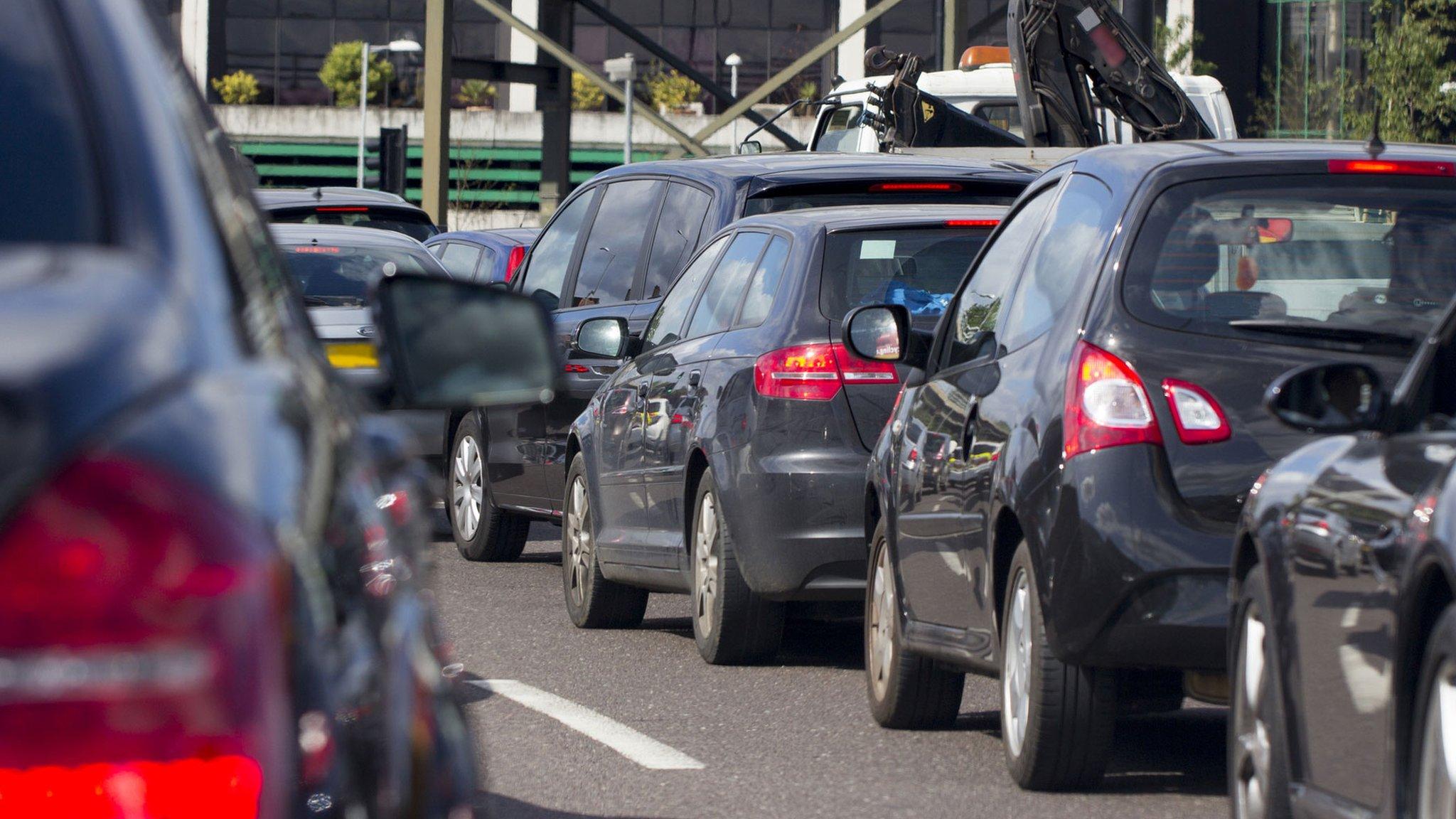Formula E: How electric motorsport is changing cars on the road
- Published
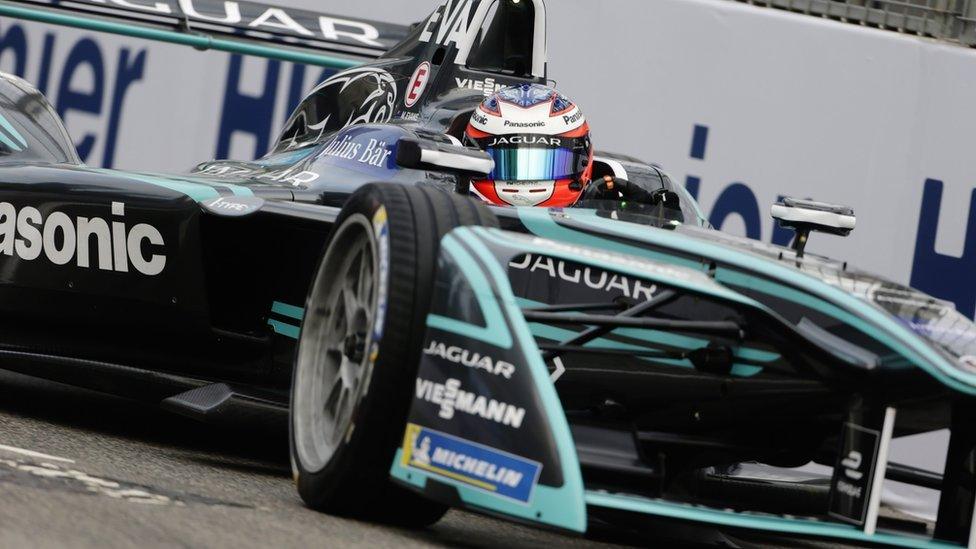
Panasonic Jaguar Racing made its Formula E debut ahead of the 2016-17 season
Formula E is the world's first championship for electric cars.
While the sport is relatively new, it's already having a big impact on the development of electric technology for drivers like you and me.
All new petrol and diesel vehicles are due to be banned in the UK from 2040 - and while that's good news for the environment, it means there's pressure on manufacturers to develop electric vehicles.
Which is one of the main reasons why Jaguar has become involved with the sport.
Radio 1 Newsbeat was given behind-the-scenes access to Panasonic Jaguar Racing.
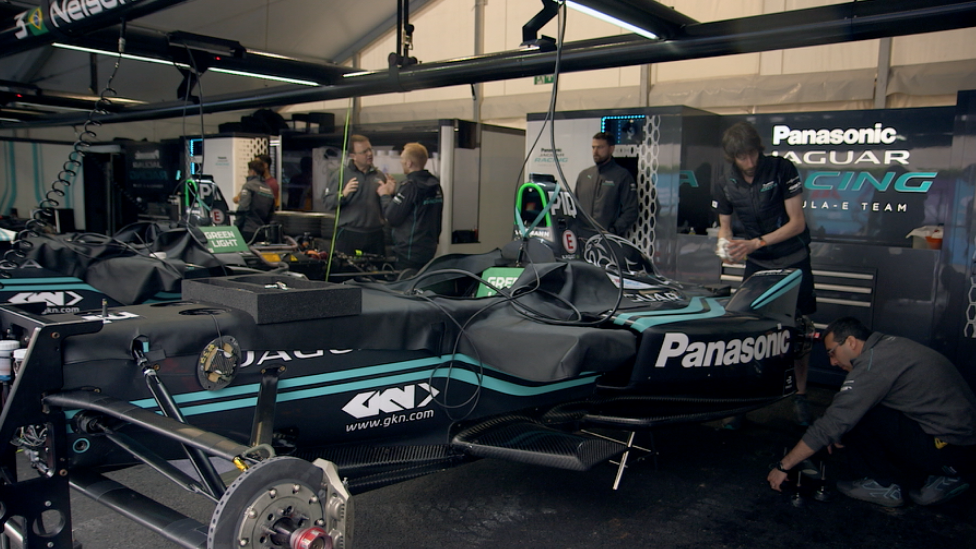
Radio 1 Newsbeat saw the engineers preparing the cars for the Rome e-prix
"One of the cool things about Formula E is that we rip up the rule book," says James Barclay, the team director.
"We come racing in city centres that no-one's ever done before."
But it's also a place for innovation - where technology developed to win races is being fed back from race track to road.
"We're pushing the boundaries of the technology right to the very limit," James says.
"What we learn here will ultimately make cars that drive more efficiently and faster - and more enjoyably for our consumers - and that's really key," he tells Newsbeat.
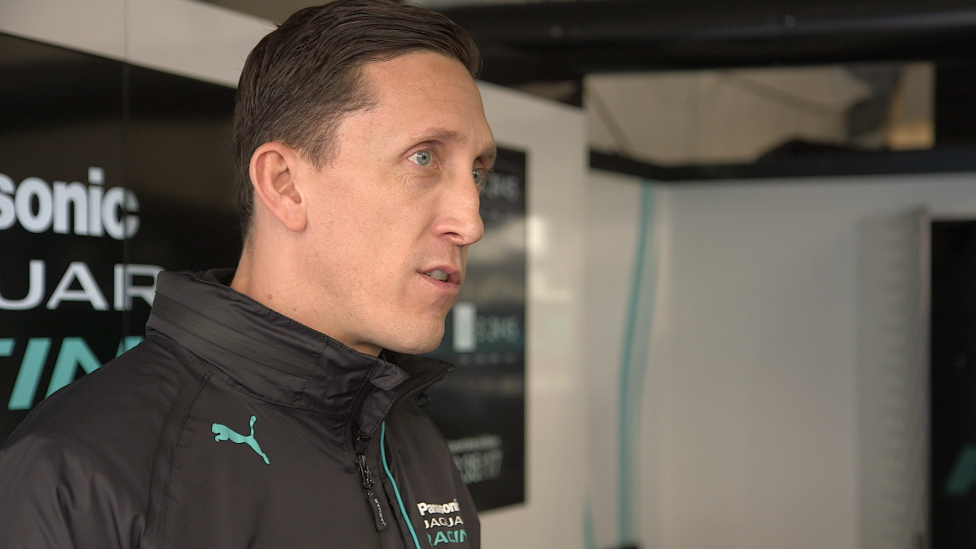
James Barclay is the team director for Panasonic Jaguar Racing
Jaguar is one of the first teams in the championship to bring out an electric road car, and it's clear that its involvement in the sport has played a part in the vehicle's development.
The I-PACE launches in summer 2018 and has a range of around 400 miles.
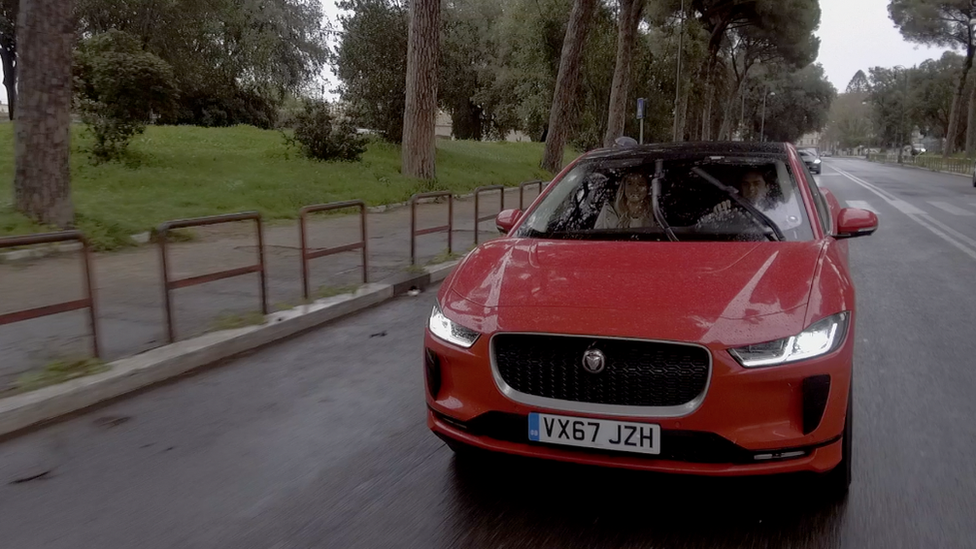
The I-PACE is Jaguar's first all-electric car
Battery life has so far proved to be the main limitation of electric cars.
Many consumers are thought to be put off buying one because of the limitations of how far they can travel on a single charge.
Formula E teams have been working to improve the capabilities of the batteries in their race cars.
Drivers currently use two cars in races because of battery limitations - but as of next season they'll move down to one.
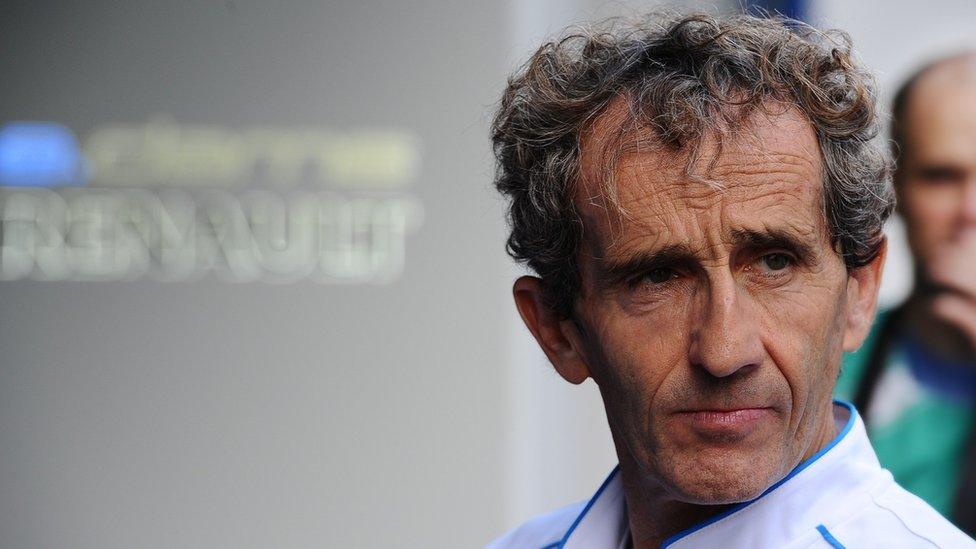
Alain Prost co-founded the RENAULT e.dams team
We chatted to former Formula One world champion Alain Prost about the step forward.
"It'll prove to the world that we've improved by 100% the potential of the batteries and the technology," he tells Newsbeat.
Something which in time, should translate to road cars too.
Alejandro Agag is the Formula E CEO. He thinks it's a huge development and describes it as "a very visible demonstration of how fast this technology is moving forward."
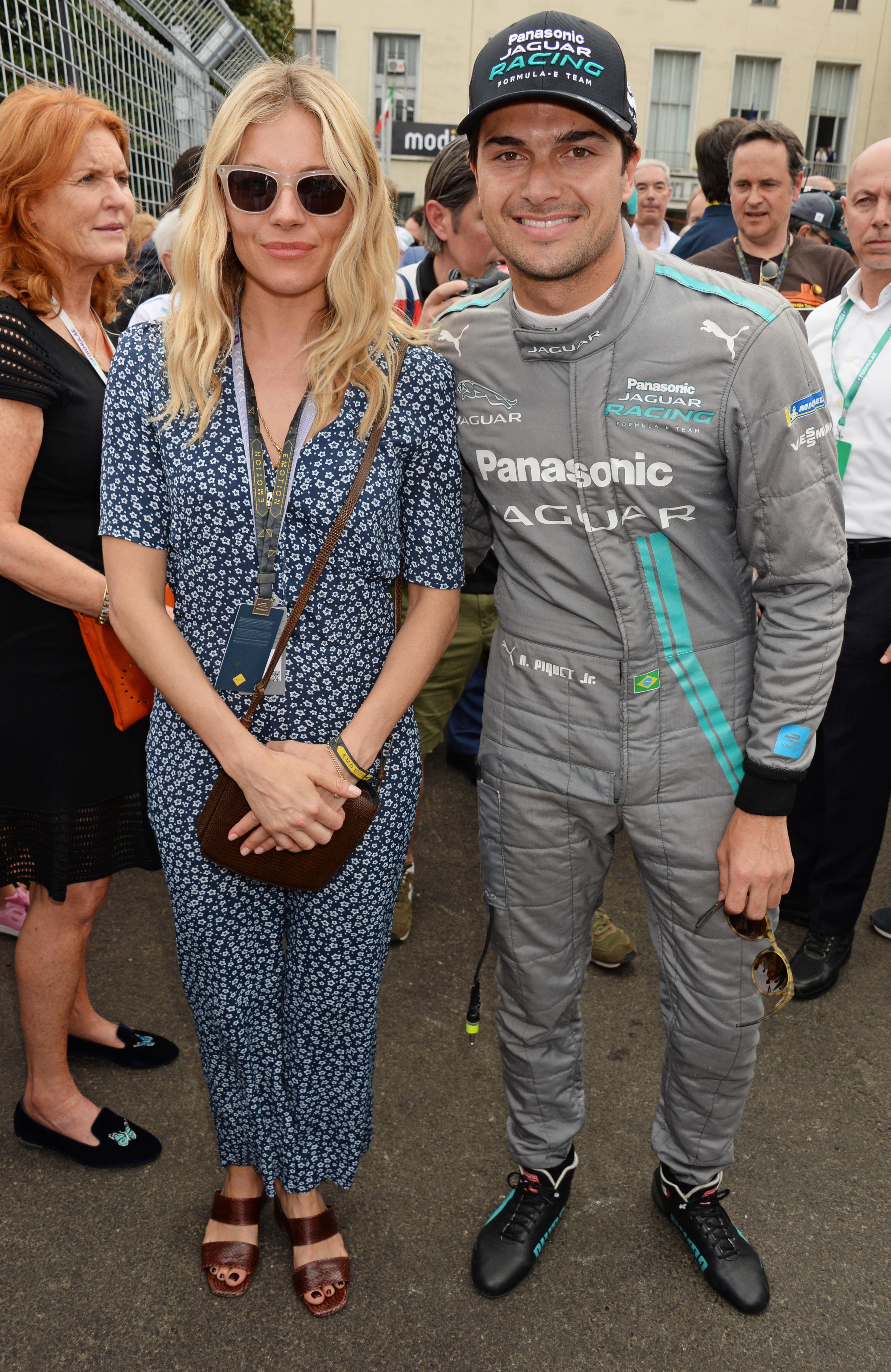
Nelson Piquet Junior on the grid with Sienna Miller in Rome

Jaguar's Nelson Piquet Junior, an ex-Formula One driver, took us around Rome in the new car.
"It's only the second season in Formula E for Jaguar.
"The more we keep racing, the more we keep learning, the more we're developing our parts in the car, the more it's going to help these cars learn," he tells Newsbeat.
"It's a long process but the plan is to make the cars better on the race track and help develop the road cars that we're launching in the future."
The likes of Audi, Nissan and Renault are also a part of the sport, with Mercedes-Benz and Porsche due to join the Championship too.
You can watch Newsbeat's documentary Formula E: Driving Change on the BBC iPlayer now.
Follow Newsbeat on Instagram, external, Facebook, external and Twitter, external.
Listen to Newsbeat live at 12:45 and 17:45 every weekday on BBC Radio 1 and 1Xtra - if you miss us you can listen back here.
- Published7 June 2018
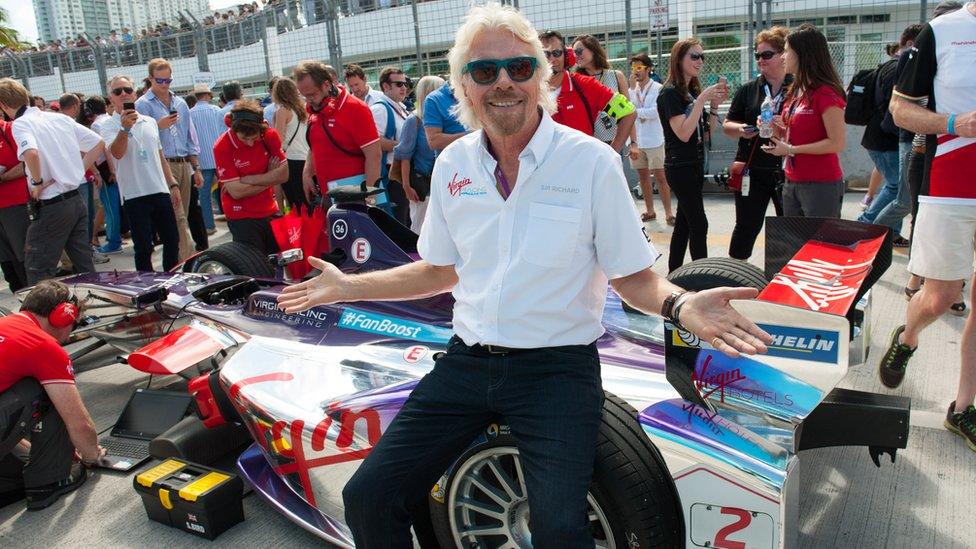
- Published26 July 2017
